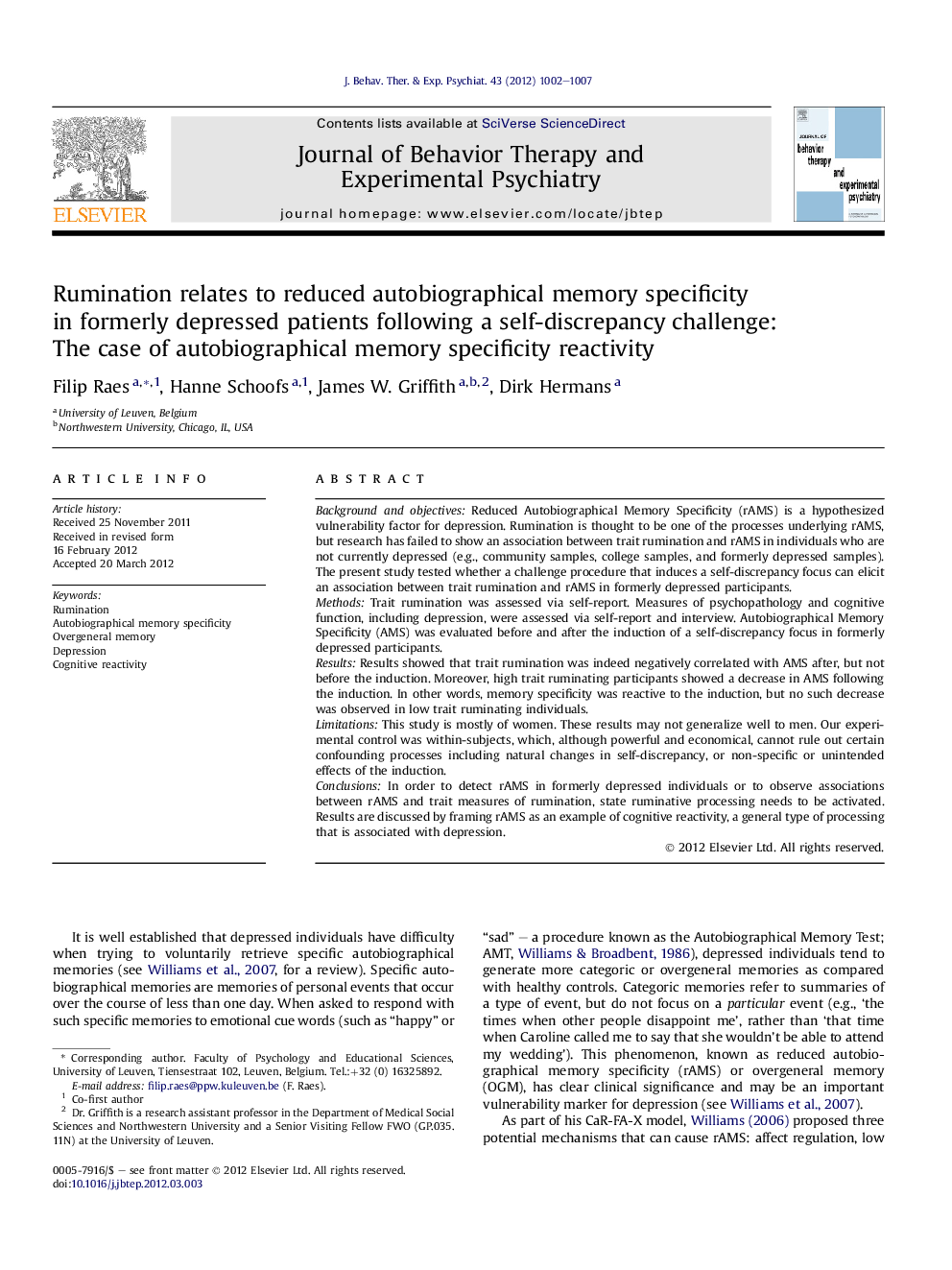| Article ID | Journal | Published Year | Pages | File Type |
|---|---|---|---|---|
| 910443 | Journal of Behavior Therapy and Experimental Psychiatry | 2012 | 6 Pages |
Background and objectivesReduced Autobiographical Memory Specificity (rAMS) is a hypothesized vulnerability factor for depression. Rumination is thought to be one of the processes underlying rAMS, but research has failed to show an association between trait rumination and rAMS in individuals who are not currently depressed (e.g., community samples, college samples, and formerly depressed samples). The present study tested whether a challenge procedure that induces a self-discrepancy focus can elicit an association between trait rumination and rAMS in formerly depressed participants.MethodsTrait rumination was assessed via self-report. Measures of psychopathology and cognitive function, including depression, were assessed via self-report and interview. Autobiographical Memory Specificity (AMS) was evaluated before and after the induction of a self-discrepancy focus in formerly depressed participants.ResultsResults showed that trait rumination was indeed negatively correlated with AMS after, but not before the induction. Moreover, high trait ruminating participants showed a decrease in AMS following the induction. In other words, memory specificity was reactive to the induction, but no such decrease was observed in low trait ruminating individuals.LimitationsThis study is mostly of women. These results may not generalize well to men. Our experimental control was within-subjects, which, although powerful and economical, cannot rule out certain confounding processes including natural changes in self-discrepancy, or non-specific or unintended effects of the induction.ConclusionsIn order to detect rAMS in formerly depressed individuals or to observe associations between rAMS and trait measures of rumination, state ruminative processing needs to be activated. Results are discussed by framing rAMS as an example of cognitive reactivity, a general type of processing that is associated with depression.
► Autobiographical memory specificity (AMS) was evaluated in formerly depressed. ► We induced a self-discrepancy focus in between two AMS evaluations. ► Trait rumination was related to reduced AMS after, but not before the induction. ► High (vs low) trait ruminators showed a decrease in AMS following the induction. ► rAMS may be one instance of cognitive reactivity in depression.
